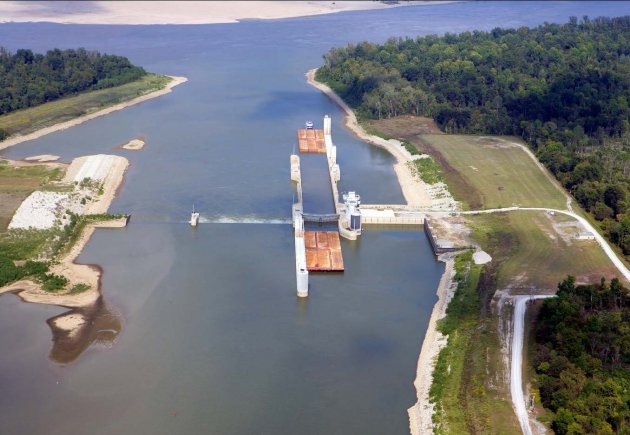On Tuesday, President Trump signed Senate Bill 3021, America’s Water Infrastructure Act of 2018 (AWIA 2018) into law. The bill authorizes an estimated $3.8 billion in new Army Corps of Engineers civil works projects, fiscal year 2019 appropriations of $7 billion, and emergency supplemental funds of $17.4 billion. The legislation includes the Water Resources Development Act of 2018 (WRDA).
The law passed the Senate by a 99 to one vote. The House of Representatives passed the legislation by voice vote.
The bill provides funds for critical infrastructure projects to protect communities from flood and storm risk and promotes economic growth in maintaining and improving the nation's navigation system.
AWIA 2018 expedites the delivery of federal resource projects by authorizing multiple new projects for construction and providing streamlining tools to non-federal sponsors interested in implementing federally authorized projects. The bill incentivizes the development of effective and efficient water infrastructure by authorizing measures that would provide greater flexibilities for the Corps of Engineers and its non-federal partners to use available federal and non-federal funds, make greater use of contributed funds, and allow innovative use of contracting tools. The bill also increases tools available for financing federal projects, including additional tools to work with other federal agencies.
“Congress has taken significant positive steps with this bill, and I look forward to working with them to continue advancing the president’s goal of reforming project delivery and unleashing economic growth,” R.D. James, assistant secretary of the Army for civil works,” said in a prepared statement.
AWIA 2018 focuses on the infrastructure needs and priorities of today by addressing the portion of the president's infrastructure initiatives related to deauthorization of certain federal civil works projects.
In addition to AWIA 2018, the Corps received $7 billion in appropriations for the Civil Works program in the Energy and Water Development and Related Agencies Appropriations Act of 2019. Fiscal year 2019 appropriations will support $2 billion in construction of water resource projects of which $1.3 billion will be used for new and on-going high priority construction projects throughout the country. Fiscal year 2019 appropriations provided $368 million to the Mississippi River and Tributaries program, $35 million to flood control and coastal emergencies program, and a record $3.74 billion for the Corps' Civil Works Operations and Maintenance program. Earlier this year, the Bipartisan Budget Act of 2018 provided an additional $17.4 billion to support natural disaster recovery activities.
“The passage of WRDA 2018 is a win for the nation’s towboat operators, freight shippers, ports, and labor and conservation groups that rely on an efficient inland waterways system,” Mike Toohey, president and CEO, Waterways Council Inc., said in a prepared statement. “This bill strengthens our nation’s vital inland waterways transportation system, will create and sustain American jobs, increase exports, and keep the United States competitive in world markets.”
With AWIA 2018, the fiscal year 2019 appropriations of $7 billion and the emergency supplemental funding, the Corps now has key tools that are integral to promoting economic growth and investing in the country’s water resources infrastructure, Corps officials said.
The American Composites Manufacturers Association (ACMA) praised the inclusion of Section 1208, directing the Corps to study the performance of materials like composites in water resources infrastructure and report to Congress on opportunities for their broader deployment.
Tom Dobbins, president and CEO of ACMA, said the provision "will lead to the modernization of the Corps of Engineers' codes and guidelines so that innovative solutions can be commonly used rather than just in pilot projects periodically, as it has been the case. These materials have been proven and now should be the standard so that our infrastructure is more resilient and longer lasting."
“Today’s AWIA passage continues the trend of streamlining maritime infrastructure improvements by expediting evaluations, enabling timely decisions and providing greater funding flexibilities, as well as authorizing new projects,” said Kurt Nagle, president and CEO of the American Association of Port Authorities (AAPA).
In addition to authorizing three coastal navigation channel improvement projects (benefitting the ports of Seattle, Galveston, Texas, and San Juan, Puerto Rico) to proceed to construction, the new legislation approves modifications to authorized navigation projects in Savannah, Ga.; Norfolk, Va.; and Sault St. Marie/Soo Locks, Mich. It also expedites qualifying projects currently under study to proceed into the preliminary engineering and design phase, benefitting the Port of Tacoma, Wash., tributaries leading to the Port of New York and New Jersey, and ports in Houma, La.; Baptiste Collette, La.; Bayou Lafourche, La.; and Nome, Alaska.




